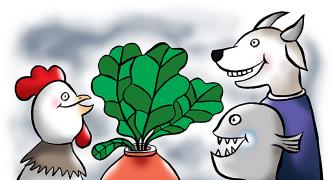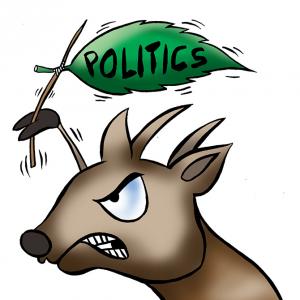According to a study, one's moral obligation towards animals varied widely as a function of how an animal is perceived, its functional role in society and its relationship with humans.

Photograph: Hitesh Harisinghani/Rediff.com
An individual's take and views on vegetarianism tell a lot about their nature and overall behaviour, a new study has claimed.
According to a study conducted by the University of Kent, if people perceive the rise of vegetarianism as a threat to their way of life, they are more likely to care less for some animals.
Researchers studied the impact of human supremacy beliefs and vegetarianism on whether people feel moral concern for animals, ranging from those normally considered to be pets, such as cats and dogs, through to those reared for eating, such as pigs and cows, and wild animals.
Moral obligation towards animals varies widely as a function of how an animal is perceived, its functional role in society, and its relationship with humans.
The vast majority of respondents (90 per cent) felt morally obliged to show concern for the welfare and interests of dogs (a companion animal), but only 51 per cent felt the same about pigs (a food animal).
The study, involving participants in the US, found that both human supremacy beliefs and a perceived vegetarianism threat are important in explaining why some people morally exclude animals.
The results demonstrated that stronger human supremacy beliefs and vegetarianism threat predicted the inclusion of fewer animals in individuals' moral circles over a reasonably large time interval.
More specifically, human supremacy beliefs predicted moral exclusion of all animal categories under investigation. That is, the stronger the dominance beliefs the more likely appealing (e.g., chimps) and unappealing (e.g., snakes) wild animals, companion animals (e.g., dogs), and food animals (e.g., pigs) would be morally excluded.
However, the effects of vegetarianism threat were more specific and only emerged for certain animal categories.
Stronger vegetarianism threat predicted lesser moral inclusion of food animals, but not of companion animals and unappealing animals.
The study appears in the journal European Journal of Social Psychology.










